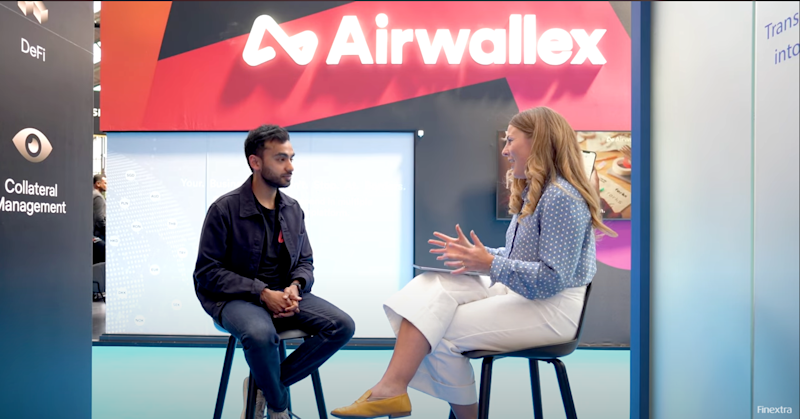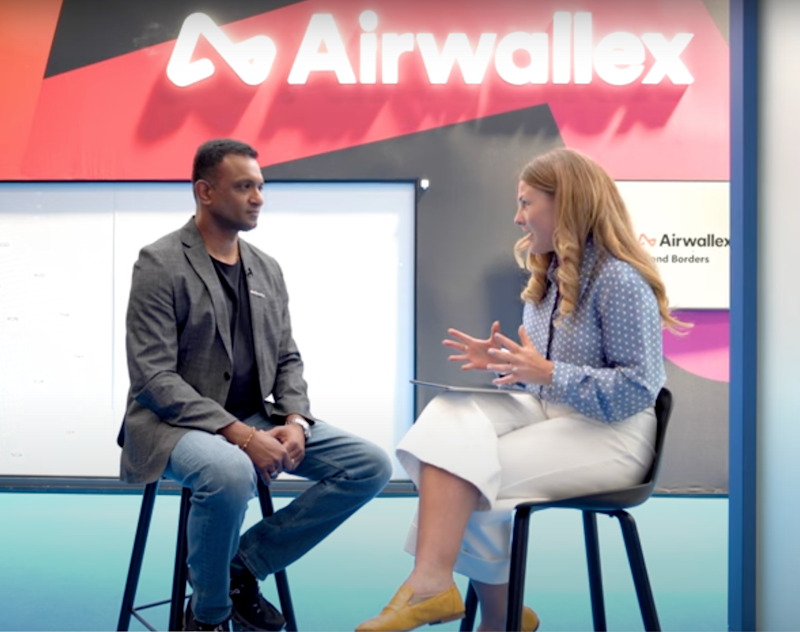Overheard at Money20/20 Europe👂| UK

David Beach
Senior Editor | Payments, banking, financial technology, and global commerce - EMEA

We caught up with the Airwallex leadership team after Money2020 Europe to find out the most interesting topics, trends and reflections that they overheard at the conference. Here’s the top three.
1. Re-globalisation: Something every multinational should be aware of
We’ve had globalisation, we’ve had deglobalisation, and now we have re-globalisation. What does it mean? It’s a phenomenon whereby economic power is re-balancing amid a backdrop of shifting geopolitics. Global supply chains are shifting from one dominant geography to another. As the cost of manufacturing rises in one part of the world, another offers a more competitive solution and entire supply chains shift.
We’re seeing payment volumes grow in emerging geographies as local companies compete to provide more cost-effective manufacturing. We’ve seen payment volumes grow in Latin America, in South East Asia and in the Middle East.
Why should fintechs pay attention to re-globalisation?
Re-globalisation will become a recurring feature on the world stage. Businesses that have the payments infrastructure in place to quickly take advantage of emerging market supply chains will be more adaptable. Businesses need to future-proof their supply chains by investing in emerging market financial infrastructure.
We’re betting this will remain a theme for Money20/20 USA and Asia as well.
2. Generative AI: Just an iteration of machine learning?
No – emphatically no. While machine learning has been combating fraud for years, generative AI promises 10x, 100x and 1000x improvements. Generative AI - spearheaded by OpenAI’s technology - is markedly different to its predecessors because it’s able to consume vast amounts of data, create deep neural networks composed of billions of parameters and generate meaningful results quickly. Based on our conversations at the conference, generative AI’s potential application spans far beyond common-use cases like consumer personalization and enhanced fraud prevention. Generative AI could be applied to:
Self-serve customers. AI can be trained on internal company documentation to make customer self-serve far more efficient and quick, while also learning which historic answers were most helpful and iteratively improving.
Accelerate engineering output. Developers could train generative AI to quickly build code from simple prompts and deploy the prototype for testing. While some way off, developers could have an AI colleague who does the heavy coding, and the humans step in for QA. This also means developers can test many different scenarios.
Support internal productivity. Company knowledge is stored across various platforms. We’re looking at how employees can ‘search’ all internal documents and even prompt a generative AI tool to custom-compile data reports.
We are already actively exploring a few of these routes. Keep your eyes out for a blog dedicated to generative AI and payments soon.
3. Embedded finance defies the global economic downturn
The appetite for Embedded finance and Banking as a Service continues to grow with a fresh hunger for cross-border embedded finance solutions that will feed growth across multiple geographies.
That trend is driven, at least in part,by the economic downturn as business strive to build a global presence so they can react quickly to recovering markets or better support shifting supply chains thanks to re-globalisation.
Businesses are also maturing their strategies to monetise the finance they embed. This is largely because the fast followers have learned from the first movers and are now implementing embedded finance in more competitive (and imaginative) ways – not just for individual embedded features (i.e. checkout or payout) but the full suite of financial products (i.e. owning the whole infrastructure)
The market for embedded finance is widening, too. New verticals like B2B SaaS, Capital as a Service and marketplaces are developing compelling and quick-to-market propositions. This is especially true for consumer propositions and the desire to ‘walletify’ consumer apps. We’re also seeing the size and age of businesses embedding finance become less relevant. Entrepreneurs are embedding finance as default from the get-go, while older Internet 1.0 businesses are using embedded finance to leapfrog newer competitors.
Spotted at Money20/20 Europe 👀

Pranav Sood, General Manager, EMEA on Finextra TV.

Ravi Adusumilli, SVP, Strategic Partnerships & GM, America on Finextra TV.


David Beach
Senior Editor | Payments, banking, financial technology, and global commerce - EMEA
David manages editorial content for the Airwallex community. He specialises in content that helps EMEA businesses navigate global and local payments, treasury, and banking.
Posted in:
Airwallex news